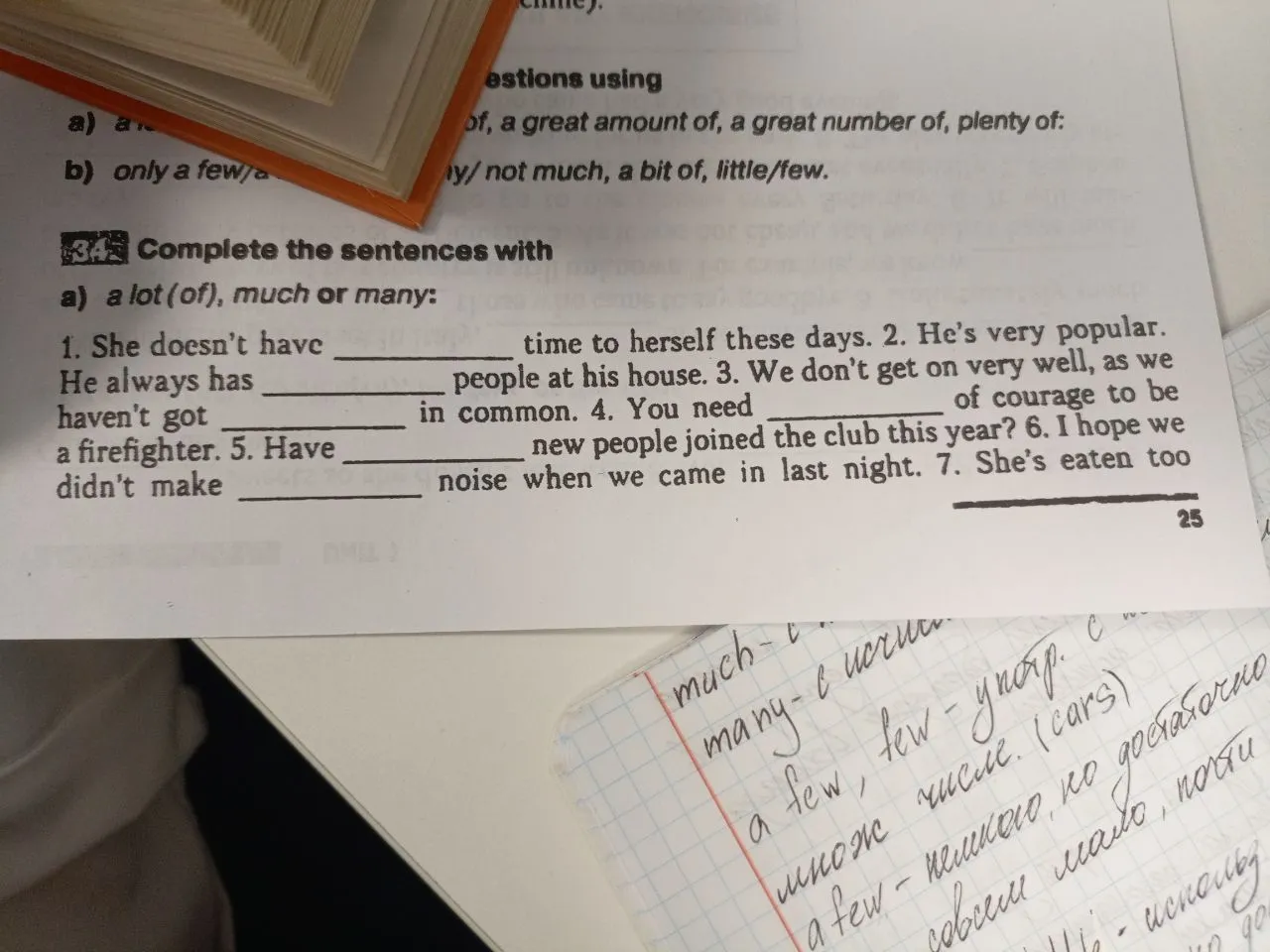My Content
Account
Catalog
System
App & Social
Our Projects
×
![]()

{
"subject": "English Language",
"grade": 7,
"url_subject": "english",
"lang": "en",
"title": "Using Quantifiers in English Sentences",
"description": "Practice exercise on using quantifiers 'a lot (of)', 'much', and 'many' in English sentences",
"keywords": ["quantifiers", "english grammar", "a lot of", "much", "many", "sentence completion", "language learning"]
}
Let's complete these sentences using the appropriate quantifiers (a lot (of), much, many). I'll help you understand how to choose the correct one for each case.
"She doesn't have much time to herself these days."
- We use "much" with uncountable nouns like "time"
"He's very popular. He always has many/a lot of people at his house."
- Both "many" and "a lot of" work here as "people" is countable
"We don't get on very well, as we haven't got much in common."
- "In common" is an uncountable concept, so we use "much"
"You need a lot of courage to be a firefighter."
- "Courage" is uncountable, and "a lot of" works well here
"Have many new people joined the club this year?"
- "People" is countable, so we use "many"
"I hope we didn't make much noise when we came in last night."
- "Noise" is uncountable, so we use "much"
"She's eaten too much..."
- This refers to an uncountable amount of food/eating, so we use "much"
Remember these rules:
- Use "much" with uncountable nouns (time, money, water)
- Use "many" with countable nouns (people, books, cars)
- "A lot of" can be used with both countable and uncountable nouns


Use Homiwork as a regular app. It's convenient!
Add to Home ScreenUse Homiwork as a regular app. It's convenient! Open your Safari menu and tap 'Add to Home Screen'.


By starting to use the service, you accept: Terms of Service, Privacy Policy, Refund Policy
